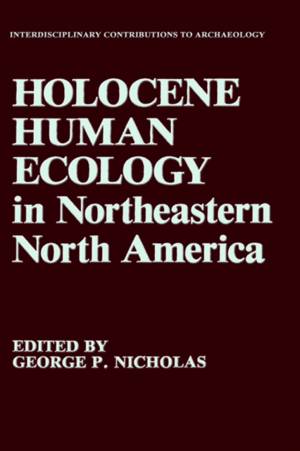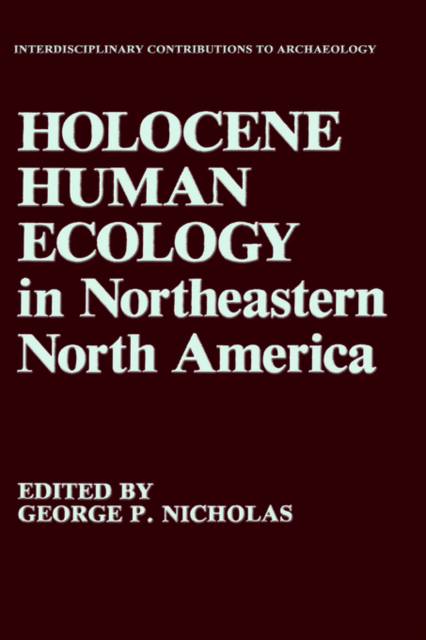
Bedankt voor het vertrouwen het afgelopen jaar! Om jou te bedanken bieden we GRATIS verzending (in België) aan op alles gedurende de hele maand januari.
- Afhalen na 1 uur in een winkel met voorraad
- In januari gratis thuislevering in België
- Ruim aanbod met 7 miljoen producten
Bedankt voor het vertrouwen het afgelopen jaar! Om jou te bedanken bieden we GRATIS verzending (in België) aan op alles gedurende de hele maand januari.
- Afhalen na 1 uur in een winkel met voorraad
- In januari gratis thuislevering in België
- Ruim aanbod met 7 miljoen producten
Zoeken
Holocene Human Ecology in Northeastern North America
€ 167,95
+ 335 punten
Omschrijving
Students of human behavior have always been interested in the relationship between human populations and their environment. Decades of research not only have illuminated the backdrop against which culture is viewed, but have identi- fied many of the conditions that influence or promote technological develop- ment, social transformation, and economic reorganization. It has become in- creaSingly evident, however, that if we are to explore more forcefully the linkages between culture and environment, a processual orientation is required. This is found in human ecology-the study of the relationship between people and the ecosystem of which they are a part. This book is a collection of papers about the recent and distant past by scientists and humanists involved in the study of human ecology in northeastern North America. The authors critically examine the systemic interface between people and their environment first by identifying the indicators of that rela- tionship (e.g., historical documentation, archaeological site patterning, faunal remains), then by defining the processes by which change in one part of the ecosystem affects other parts (e.g., by conSidering how an ecotonal gradient affects biotic communities over time), and finally by explicating the behavioral implications thereof.
Specificaties
Betrokkenen
- Uitgeverij:
Inhoud
- Aantal bladzijden:
- 320
- Taal:
- Engels
- Reeks:
Eigenschappen
- Productcode (EAN):
- 9780306428692
- Verschijningsdatum:
- 31/07/1988
- Uitvoering:
- Hardcover
- Formaat:
- Genaaid
- Afmetingen:
- 156 mm x 234 mm
- Gewicht:
- 657 g

Alleen bij Standaard Boekhandel
+ 335 punten op je klantenkaart van Standaard Boekhandel
Beoordelingen
We publiceren alleen reviews die voldoen aan de voorwaarden voor reviews. Bekijk onze voorwaarden voor reviews.








